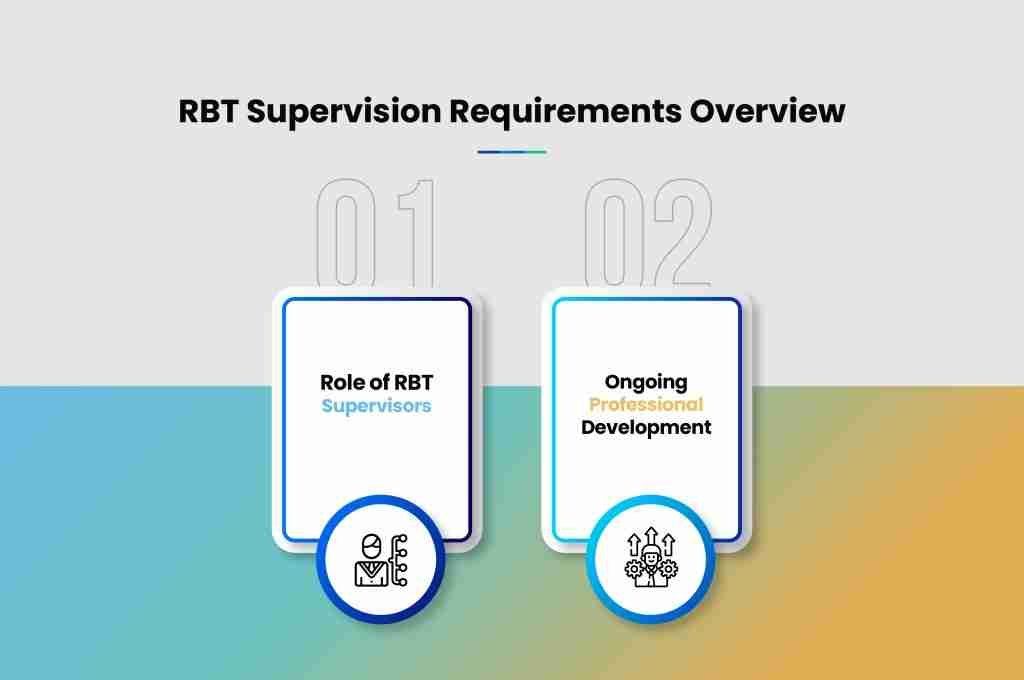Charting the Course: ABA Therapy Supervision in Colorado Revealed
ABA TherapyJuly 17, 2025

ABA Therapy Supervision in Colorado
ABA therapy supervision in Colorado has some hoops that supervisors have to jump through, all to make sure that the therapy does what it's supposed to do and does it well. So let me walk you through what's required for both the training and certification if you're looking at being a Board Certified Behavior Analyst (BCBA) in Colorado.
Supervision Training Requirements
If you're a supervisor in Colorado watching over folks aiming to get their BCBA or BCaBA certification, you'll need to tick off an 8-hour training session from your to-do list. This isn't just any training though; it follows the Supervisor Training Curriculum Outline 2.0. And, here's the kicker, you gotta finish this before you even start supervising. The training gets a thumbs-up from places like ACE Providers or those Verified Course Sequences.
Want to dive into the nitty-gritty details? Check out the BACB.
Certification for BCBAs in Colorado
Getting your BCBA in Colorado is somewhat like a rite of passage, with education and certification boxes to check off. You gotta face the BCBA exam, which is a beast of 150 multiple-choice questions covering all sorts of stuff. A little heads-up: the passing rate can swing differently depending on which program you're in, so no sweat if you're a little nervous.
Snagging your BCBA certification in Colorado means you're not just another face in the crowd. It tells people you've got the know-how and skills that really matter. Plus, it's a big stepping stone for climbing the career ladder and finding more gigs all over the state.
For all you need to know about getting that BCBA certification, pop over to Brighter Strides ABA.
By going through the ropes of supervision training and nailing that BCBA certification, you're not just boosting your own skills and knowledge—you're changing lives. Helping folks with ABA in Colorado has a ripple effect, making a real difference in their lives and on the job.
Becoming a BCBA in Colorado
Want to step into the world of ABA therapy as a Board Certified Behavior Analyst (BCBA) in Colorado? Let’s chat about the steps to get there, from books and learning to the official stamp of approval.
Certification Process
Once your study and practice hours are logged, the next step is the certification process. The big boss here is the Behavior Analyst Certification Board (BACB). Grab your #2 pencils—well, okay, probably a computer—but it's time for the BCBA exam. Expect 150 questions about ABCs, intervention know-how, and ethical choices. The pass rates can vary, but don’t sweat it; you’ve got this (Brighter Strides ABA).
If you're eyeing the BCBA-D label, you’ll need to put in your application, push some papers, and hand over a $105 fee. Extra documents might be on the list, especially if you’ve gone the doctoral route. They take certification seriously, so it's all about proving you’ve got the chops to make a difference with ABA.
Once you've nailed that certification, you’re not just adding letters to your name. You're opening doors to help folks with autism and other developmental challenges. With your new creds in hand, you’re ready to bring top-notch ABA services to Colorado, making a real impact in people’s lives. Cheers to you for stepping into this vital, life-changing field!
Education and Training
First up, hit the books. You’ll need a graduate degree from an accredited school, ideally focused on behavior analysis or something close. The classes you take should dig into things like evaluating behaviors, plotting out intervention plans, ethics in practice, and research techniques. Part of your schooling will also include racking up a set number of supervised practicum hours. Think of it as on-the-ground training for your future BCBA duties.
Now, the hands-on stuff. The Behavior Analyst Certification Board (BACB) wants you to complete 2,000 hours of supervised fieldwork. That’s a whole lot of learning in the field. If you’re in a hurry, there's a faster track—called concentrated supervised fieldwork—where you can zip through in 1,500 hours. This experience is all about getting your feet wet with real-world ABA strategies (Brighter Strides ABA).
RBT Supervision Requirements Overview

In the world of ABA therapy, making sure Registered Behavior Technicians (RBTs) get the right supervision is a big deal. This isn't just so everyone's following the rules; it's about giving top-notch care. The standards are laid out by the Behavior Analyst Certification Board, or BACB if you're into abbreviations.
Role of RBT Supervisors
When you're an RBT supervisor, you're not just someone who's been in the trenches. You're a card-carrying pro with a real understanding of Applied Behavior Analysis (ABA). Your job? Keep an eye on what the RBTs are up to, making sure they're sticking to all the guidelines and best practices everyone's worked so hard to put together. The BACB says you need to put in eight hours of supervision training, so you know how to really step up and help RBTs grow in their roles.
Ongoing Professional Development
Being an RBT isn't just about what you know now; it's about what you can keep learning. The ABA field is always moving, and staying in the loop with workshops and seminars is a no-brainer if you want to sharpen your skills. With each training session, RBTs rack up more know-how and get better at offering outstanding care to the folks who rely on ABA services (Connect n Care).
Staying on top of all this requires decent record-keeping, and that's not something you can be lazy about. Keeping track of supervision sessions—like when they happened, how long they ran, and any juicy details about what was talked about—matters if you want to stay on the certification's good side. This isn't just about avoiding a slap on the wrist; it's about showing you're the real deal in ABA therapy.
Documentation in RBT Supervision
Writing things down, saving the right details—that's the meat and potatoes of making sure RBT (Registered Behavior Technician) supervision runs smoothly in the crazy world of Applied Behavior Analysis (ABA) therapy.
Record-Keeping Procedures
When you're keeping your RBTs in line, having a solid habit of jotting down notes is super important. You need to keep track of all the goodies like when, how long, and what kind of pep talks or guidance sessions were held. Get all the juicy details of what was discussed in each heart-to-heart to make sure RBTs get the guidance and growth they need to conquer the world (Connect n Care).
Having a diary that's pretty detailed not only helps you spy on how your RBTs are doing but also keeps you in line with what those big shots at the Behavior Analyst Certification Board (BACB) require. By keeping things real with solid notes, supervisors can make sure the whole supervision gig is working fine, which means better care for the folks getting ABA therapy.
Compliance with Certification Requirements
Following the rules is king when you're bossing around RBTs. The people in charge need to hit some high bars set by the BACB if they want to be the guiding light for RBTs on their career path. Part of this gig means clocking in hours in an 8-hour program that tunes 'em up for showing the ropes (Connect n Care).
By marching in step with the standards, supervisors aren't just showing they mean business, they're also pumping up the ABA therapy scene in Colorado with some street cred. It creates an atmosphere where everyone's always learning and getting better, which is like a win-win for both RBTs and all the folks benefiting from their care.
All in all, staying sharp with your documentation and deep in those certification details, that's the backbone of rocking that RBT supervision gig in ABA therapy. By keeping a sharp eye on how you handle documenting and toeing the line with requirements, supervisors help RBTs grow like champs, making sure the quality of care for autism and other developmental things in Colorado is top-notch.
